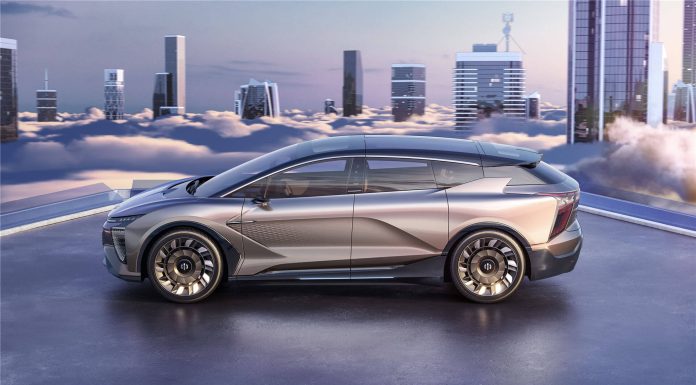Recent years have laid bare the advantages of electrification, intelligent technology and user targets for the automotive industry, and Chinese brands are increasingly launching vehicles from 300,000 yuan ($42,624) and upward in a bid to join the high-end market. Analysts have suggested that the smart electric vehicle field not only creates opportunities for the Chinese auto industry to overtake traditional players, but also for them to have success in the domestic luxury car market, which has long been dominated by European companies.
BYD issued a highly anticipated announcement on November 8, unveiling its new high-end vehicle line called Yangwang (“looking up,” in Chinese). A firm spokesperson said that “the high-end brand is expected to be launched in the first quarter of 2023, and vehicles under it are expected to be priced for 800,000 to 1.5 million yuan [$113,654 – $213,095],” adding that the first hard-drive cross-country model will be unveiled simultaneously.
Chinese automaker GAC Aion released supercar brand Hyper, priced for over 1 million yuan, and launched AEP 3.0, a high-end pure EV exclusive platform. BeyonCa, founded by Weiming Soh, a former Volkswagen China executive, also released its first concept car. The company said that the mass production version of the concept car is expected to be priced at about 1 million yuan in the future.
In October last year, HiPhi, a Chinese new energy carmaker saw its HiPhi X, a six-seat all-electric battery-powered full-size luxury crossover-utility vehicle, surpass Porsche Taycan to become the sales champion of NEVs in the luxury car market of over 500,000 yuan, just four months after its launch.
In terms of promotion, Chinese car companies frequently mention the word “luxury.” As early as May 10, 2022, Leapmotor C01, a mid-size electirc sedan, made its debut. After the pre-sale started, arguments such as “building a medium to large-sized car comparable to luxury cars worth 1 million yuan at a price of 180,000-270,000 yuan” and “showing the quality comparable to luxury cars” frequently appeared, which triggered market expectations. Leapmotor claimed that C01 has over 100,000 orders, which may be the biggest order claimed by Chinese car companies at present.
Richard Yu, Executive Director, CEO of the Consumer BG, CEO of the Intelligent Automotive Solution BU of Huawei, has made the line “1 million-yuan luxury” a frequent label. On July 4, at Huawei’s new product launch conference, the second new car under AITO, the M7, jointly developed by Huawei and Seres, went on the market, with a price ranging from 319,800 yuan to 379,800 yuan. At a press conference, Yu stressed that the M7 SUV would be more comfortable than the million-yuan MPV, and the intelligent cockpit system would be the best in the industry.
In fact, China’s ultra-luxury car market in the million-yuan range is still basically occupied by overseas car companies and traditional fuel-powered vehicle models.
Gao Chao, a researcher at the China Industry Innovation Alliance for Intelligent and Connected Vehicles, said in an interview with Chinese media that the ultra-luxury EV market is not an easy market to occupy, as it needs not only a high-performance product coefficient and unique appearance, but also sufficient brand power and luxury connotation that keeps pace with the times.
At present, NEVs in the Chinese market are faced with fierce competition, and the new carmakers, traditional Chinese car companies and joint venture car firms have confronted each other in more and more market segments. At present, the million-yuan ultra-luxury market, which is still dominated by fuel-powered vehicles, may become the next blue ocean market.

